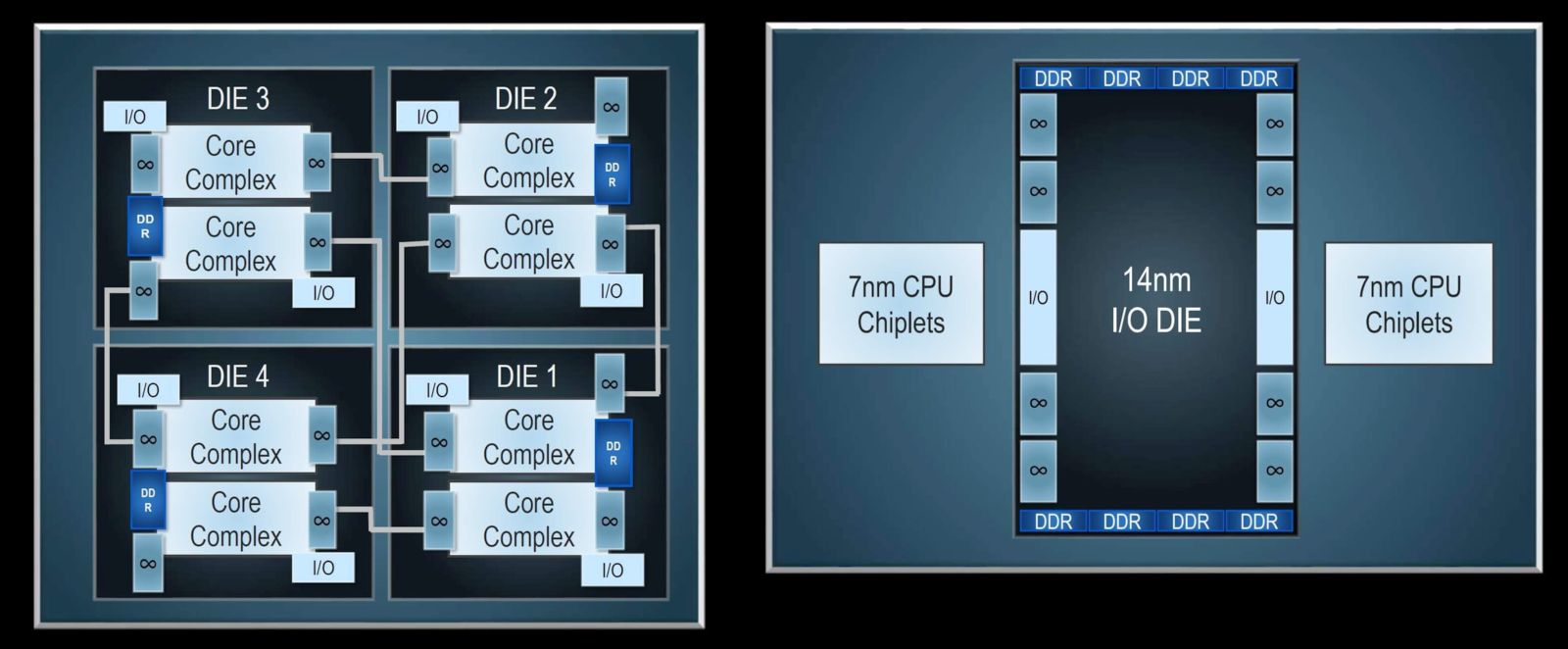Σ"Next Horizon" event, in addition to the new Instinct AMD also announced the new Zen 2 architecture The new architecture combines multiple "chiplets" containing Zen 2 cores, manufactured in TSMC factories with the 7nm manufacturing method central I / O die, which will be manufactured using 14nm manufacturing methods, possibly at GlobalFoundries factories.

As in the case of the new Instinct the Vega 20 GPU was the first GPU to be built at 7nm, so the Zen 2 cores will be the first x86 cores to be built using the 7nm manufacturing method. We already have ARM SOCs manufactured using this method.
At the event, AMD introduced the first Zen 2 CPU server of the "Rome" series, which is a series of processors that succeeds the existing EPYC processors, whose series is also known as "Naples". Although we are talking about a whole new approach to multi-core processor, new architecture and new manufacturing method, the new 7nm EPYC processors will be compatible at least with existing motherboards. This way, upgrading systems with the EPYC processors already available on the market will be a simple and easy task.

The I / O die which is at the center of the design and will be the connecting link between the CPU chiplets and the system, will integrate second generation Infinity Fabrics interconnects, as well as eight DDR4 memory controllers with support for up to 4TB of memory. Thanks to the integration of memory controllers in I / O die, all CPU chiplets will have the same latency in their communication with memory. I / O does not appear to include PCIe lanes, which means that they too will be located on the CPU chiplets. The new Rome series processors will offer 128 PCIe 4.0 lanes.

The new "Rome" series will include processor models with up to eight chiplets, each of which will have eight Zen 2 cores. Thus, the top model will have 64 cores and, thanks to Simultaneous multithreading (SMT), will support 128 threads. . In terms of consumption and performance, thanks to the new manufacturing method of 7nm, the energy consumption of "Rome" will be half at the same operating frequency as "Naples". Alternatively the performance will be 25% higher, at the same consumption. In addition, AMD has also doubled its FPU units, which means that, in combination with twice as many cores as the available EPYC processors in the "Naples" series, the performance in mathematical calculations will be up to four times. Other improvements to Rome include improved branch predictors, security vulnerabilities in the Specter class, improved execution pipeline, better pre-fetching instruction and greater Ops cache.
AMD says many large companies have expressed interest in trying out the new "Rome" EPYC processors. In fact, the company announced its cooperation with Amazon, which will now have servers with EPYC processors in the Web services it offers. The above shows that the interest of large companies in AMD's EPYCs is increasing, which is necessary for the company to be able to regain market share from the server market, where Intel remains the absolute monopoly.



